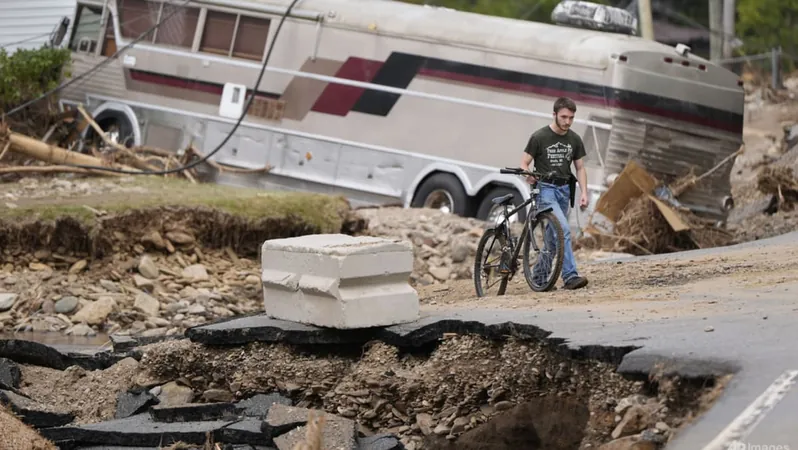
Catastrophic Hurricane Helene Claims Over 210 Lives in Southeast US – What Comes Next?
2024-10-04
ASHEVILLE, NC:
The aftermath of Hurricane Helene has left the Southeast reeling, with more than 210 lives tragically lost according to officials as of October 3. This storm has emerged as the second deadliest hurricane to strike the US in over fifty years, surpassing the devastation caused by many recent natural disasters.
President Joe Biden has visited the ravaged areas for two consecutive days, standing in solidarity with residents who have faced unimaginable hardship. “I see you, I hear you, I grieve with you - and I promise you, we have your back,” Biden declared while stopping at a beleaguered pecan farm in Ray City, Georgia, where the community is struggling to recover.
Hurricane Helene unleashed catastrophic flooding, demolishing towns and cities, rendering countless roads impassable, and disrupting essential services, including electricity and running water. As communities begin the daunting task of rebuilding, they grapple with the psychological and physical toll of a disaster that many are calling post-apocalyptic.
According to a comprehensive report from AFP, the death toll includes 212 fatalities throughout North and South Carolina, Georgia, Florida, Tennessee, and Virginia, with North Carolina suffering the most, accounting for over half of the losses. Rural and mountainous areas are particularly affected, with many residents still unaccounted for due to the storm's impact on infrastructure such as roads and bridges.
In Asheville, a picturesque city of approximately 100,000, the streets are inundated with thick mud, and structures lining the riverbanks have been swept away. Residents in nearby towns like Swannanoa have banded together, distributing supplies, clearing debris, and providing mutual support amid the destruction.
Local authorities are engaged in a perilous search for survivors across the isolated mountainous terrains, facing challenges posed by landslides and blocked routes. "We are continuing to find survivors," reported Buncombe County officials, emphasizing ongoing efforts to reach those still in need.
Compounding the urgency of the situation are warnings from climate researchers, who suggest that climate change is exacerbating the intensity of storms like Helene. The Sierra Club noted that Helene drew unprecedented energy from the Gulf of Mexico's record warm waters, amplifying its destructive capability.
Biden underscored this point during a visit, stating, "You must be brain-dead to deny the climate crisis and its impact." As the nation watches closely, the political landscape is heating up. Former President Donald Trump has been vocal in his criticism of the federal government's response, making inaccurate claims about funding and relief efforts. His comments, which downplay the significance of climate change, have drawn wide scrutiny.
As recovery efforts ramp up, experts warn that tragedy could deepen as search and rescue operations evolve into long-term rebuilding strategies. Aid is flooding into the region, with restaurants and community groups providing essential food and supplies, but those efforts must continue in the face of a potential rise in the death toll as the full scale of the destruction becomes clearer.
This catastrophe is a stark reminder of the growing threats posed by climate change, and the imperative for both immediate action and long-term solutions to protect vulnerable communities from future disasters. As the sun rises on a new day, the path to recovery is fraught yet filled with hope—neighbors helping neighbors in the true spirit of resilience.


 Brasil (PT)
Brasil (PT)
 Canada (EN)
Canada (EN)
 Chile (ES)
Chile (ES)
 España (ES)
España (ES)
 France (FR)
France (FR)
 Hong Kong (EN)
Hong Kong (EN)
 Italia (IT)
Italia (IT)
 日本 (JA)
日本 (JA)
 Magyarország (HU)
Magyarország (HU)
 Norge (NO)
Norge (NO)
 Polska (PL)
Polska (PL)
 Schweiz (DE)
Schweiz (DE)
 Singapore (EN)
Singapore (EN)
 Sverige (SV)
Sverige (SV)
 Suomi (FI)
Suomi (FI)
 Türkiye (TR)
Türkiye (TR)